
Mangochi: The Jewel of Malawi's Lakeshore
Mangochi, nestled between the southern tips of Lake Malawi and the Shire River, is a serene and picturesque destination offering a blend of natural beauty and cultural richness. Known for its stunning lakeside views and warm, welcoming locals, Mangochi serves as a gateway to some of Malawi's most captivating landscapes. The town itself is a vibrant mix of colonial history and modern development. You can explore the remnants of colonial architecture, including the famous Queen Victoria Memorial Clock Tower, which stands as a testament to Mangochi's historical significance. The bustling markets and local crafts shops offer a delightful experience for those looking to immerse themselves in the local culture. For nature enthusiasts, Mangochi is a paradise. The nearby Lake Malawi National Park, a UNESCO World Heritage Site, offers an array of activities such as snorkeling, diving, and bird watching. The crystal-clear waters of Lake Malawi are teeming with colorful cichlid fish, making it a perfect spot for underwater exploration. The scenic shores are ideal for relaxing, sunbathing, or enjoying a peaceful boat ride. Mangochi also boasts some of the best lodges and resorts in Malawi, providing luxurious accommodations with breathtaking views of the lake. Whether you're looking for adventure, relaxation, or a bit of both, Mangochi has something to offer every traveler.
Local tips in Mangochi
- Visit the Queen Victoria Memorial Clock Tower for a glimpse into Mangochi's colonial history.
- Explore the local markets for unique crafts and souvenirs.
- Don't miss snorkeling or diving in Lake Malawi to see the vibrant cichlid fish.
- Plan a day trip to Lake Malawi National Park for wildlife and bird watching.
- Stay in one of the lakeside resorts for the best views and relaxing ambiance.
Mangochi: The Jewel of Malawi's Lakeshore
Mangochi, nestled between the southern tips of Lake Malawi and the Shire River, is a serene and picturesque destination offering a blend of natural beauty and cultural richness. Known for its stunning lakeside views and warm, welcoming locals, Mangochi serves as a gateway to some of Malawi's most captivating landscapes. The town itself is a vibrant mix of colonial history and modern development. You can explore the remnants of colonial architecture, including the famous Queen Victoria Memorial Clock Tower, which stands as a testament to Mangochi's historical significance. The bustling markets and local crafts shops offer a delightful experience for those looking to immerse themselves in the local culture. For nature enthusiasts, Mangochi is a paradise. The nearby Lake Malawi National Park, a UNESCO World Heritage Site, offers an array of activities such as snorkeling, diving, and bird watching. The crystal-clear waters of Lake Malawi are teeming with colorful cichlid fish, making it a perfect spot for underwater exploration. The scenic shores are ideal for relaxing, sunbathing, or enjoying a peaceful boat ride. Mangochi also boasts some of the best lodges and resorts in Malawi, providing luxurious accommodations with breathtaking views of the lake. Whether you're looking for adventure, relaxation, or a bit of both, Mangochi has something to offer every traveler.
When is the best time to go to Mangochi?
Iconic landmarks you can’t miss
Liwonde National Park
Explore Liwonde National Park, Malawi's breathtaking national park, home to diverse wildlife and stunning landscapes perfect for adventure seekers.
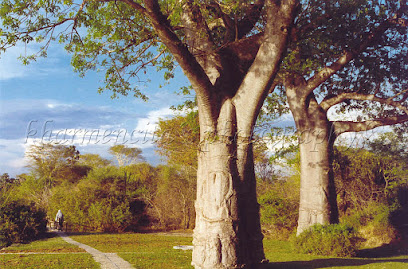
Sun 'n' Sand Holiday Resort
Experience the ultimate Malawian getaway at Sun 'n' Sand Holiday Resort, where relaxation meets adventure in a stunning tropical paradise.

Sunbird Nkopola Lodge
Discover the beauty of Lake Malawi at Sunbird Nkopola Lodge, where comfort meets adventure in a serene lakeside setting.

Lake Malawi National Park
Experience the breathtaking beauty and unique biodiversity of Lake Malawi National Park, a UNESCO World Heritage site perfect for nature lovers and adventurers.
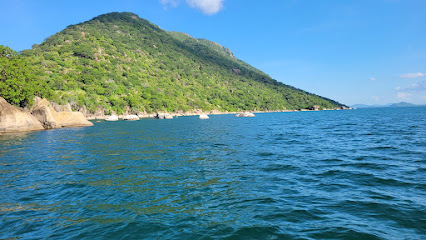
Fat Monkeys Lodge
Discover the warmth and charm of Fat Monkeys Lodge in Chembe, a perfect base for exploring the stunning landscapes and culture of Malawi.

World War I Memorial
Discover the World War I Memorial in Lilongwe, a serene park honoring the sacrifices of soldiers with beautiful landscapes and historical insights.
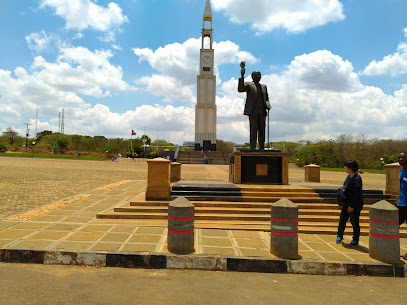
Boadzulu Lakeshore Resort
Experience the serene beauty of Lake Malawi at Boadzulu Lakeshore Resort, your perfect escape for relaxation and adventure in nature.
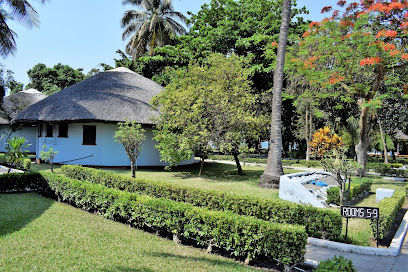
Nkhudzi Lodge
Discover the tranquil beauty of Nkhudzi Lodge, your serene escape on the shores of Lake Malawi, blending adventure with relaxation in nature's embrace.
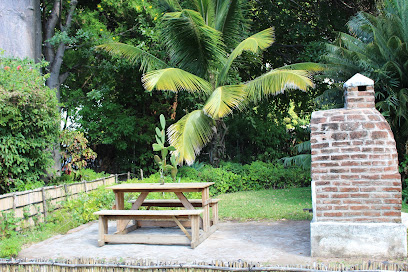
Alcon Cottage
Discover Alcon Cottage, your serene hotel retreat in Malawi, blending comfort and local charm for an unforgettable travel experience.
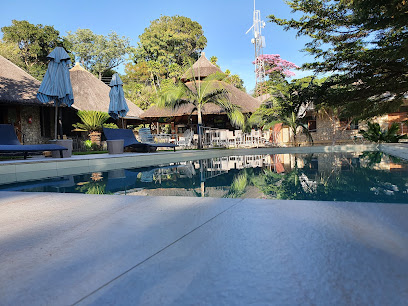
La Riviera Lodge
Experience the tranquility of La Riviera Lodge in Mangochi, Malawi, where comfort meets the stunning beauty of Lake Malawi.
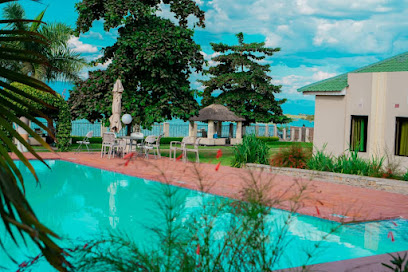
Zaburi Lake Resort By Serendib
Discover tranquility at Zaburi Lake Resort By Serendib, where stunning lake views meet comfortable accommodations and exciting outdoor adventures.

Lake Malawi National Park Visitors Center
Explore the Lake Malawi National Park Visitors Center: a gateway to stunning biodiversity and breathtaking landscapes in Malawi's UNESCO World Heritage site.
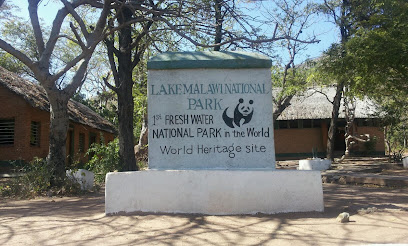
Malape pillars
Explore the stunning Malape Pillars in Malawi, a natural wonder offering breathtaking views and rich local culture amidst lush landscapes.
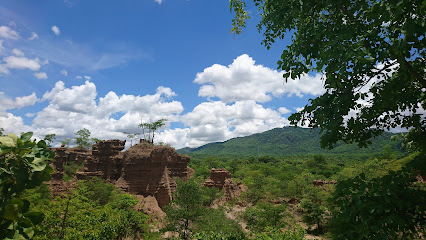
Mpale Cultural Village
Immerse yourself in the vibrant culture of Malawi at Mpale Cultural Village, where tradition meets community in every experience.

Bakili Muluzi Bridge
Discover the stunning Bakili Muluzi Bridge in Mangochi, Malawi, where breathtaking views and local culture meet in perfect harmony.
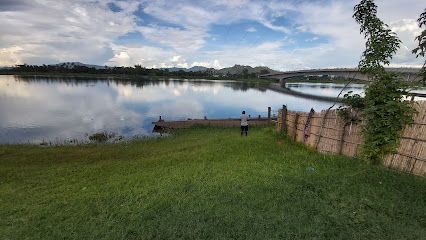
Unmissable attractions to see
Liwonde National Park
Discover the untamed beauty and rich wildlife of Liwonde National Park, where adventure awaits at every turn in Malawi's premier national park.
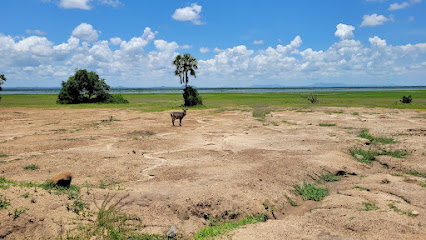
Lake Malawi National Park
Explore the breathtaking landscapes and vibrant wildlife of Lake Malawi National Park, a UNESCO World Heritage site rich in natural beauty.
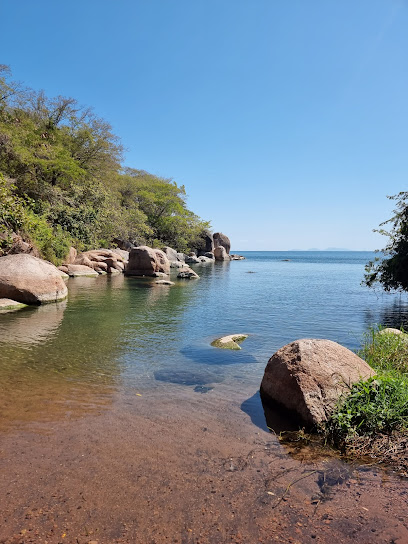
Mvuu Camp
Explore the breathtaking wildlife and serene beauty of Mvuu Camp in Liwonde National Park, a must-visit for nature lovers and adventure seekers.
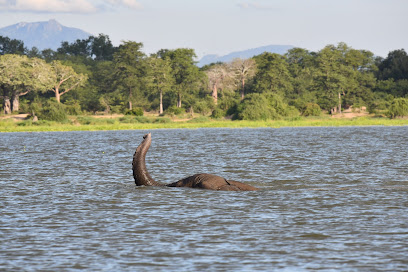
Williams Falls
Experience the breathtaking beauty of Williams Falls in Zomba, Malawi, where nature's splendor meets tranquil serenity in a mesmerizing landscape.
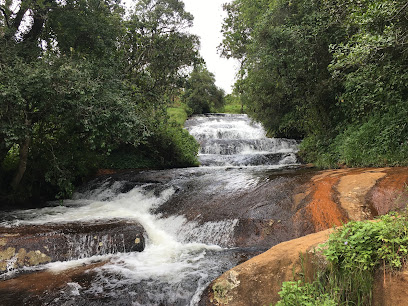
Liwonde National Park Main Entrance Gate
Explore the diverse wildlife and stunning landscapes of Liwonde National Park, a must-visit destination for nature lovers in Malawi.
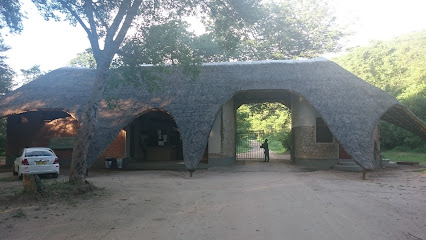
Otter Point
Explore Otter Point: A breathtaking tourist attraction with stunning views, diverse wildlife, and serene landscapes perfect for nature lovers and adventure seekers.
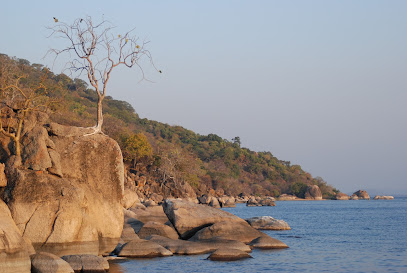
Lake Malawi National Park Visitors Center
Explore the rich biodiversity and cultural heritage at Lake Malawi National Park Visitors Center, a gateway to stunning landscapes and unforgettable adventures.
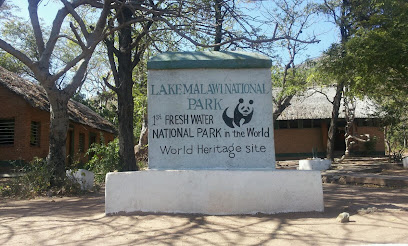
Malape pillars
Explore the breathtaking Malape Pillars in Lilomba, Malawi - a unique natural wonder ideal for nature lovers and adventure seekers.
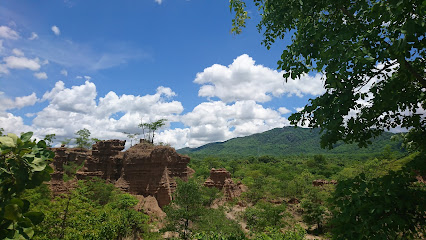
Bakili Muluzi Bridge
Discover the beauty of the Bakili Muluzi Bridge in Mangochi, Malawi - where engineering meets nature's breathtaking landscapes.
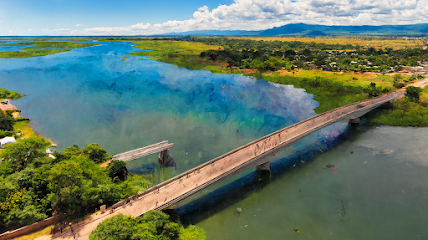
Mwala wa Mphini
Explore the stunning rock formations and rich cultural heritage of Mwala wa Mphini, a must-visit tourist attraction in Masaka, Malawi.
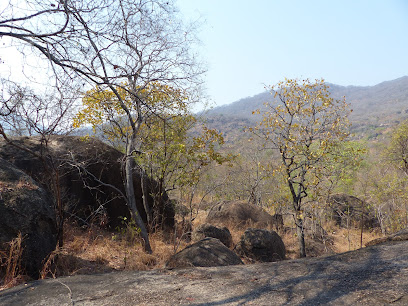
Mangochi war memorial Tower
Discover the Mangochi War Memorial Tower: A serene memorial park honoring bravery, resilience, and peace in the heart of Mangochi.
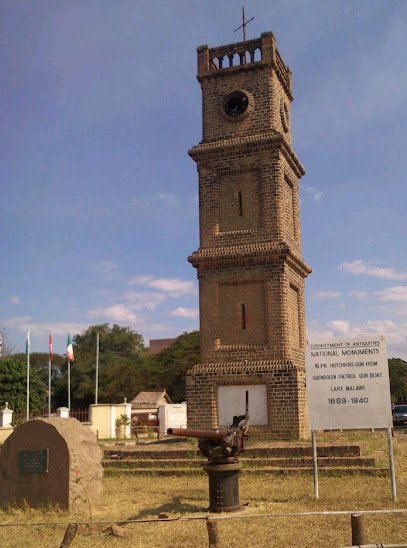
Thumbi view point
Explore the stunning Thumbi View Point, a breathtaking lookout over Lake Malawi that offers unforgettable views and serene natural surroundings.
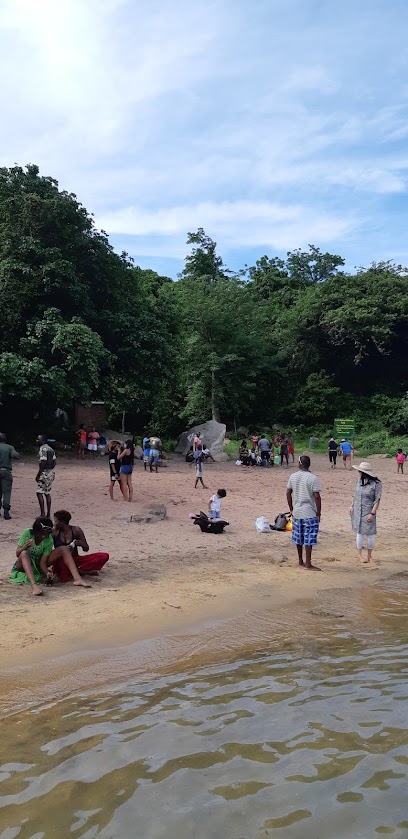
Chembe View
Discover the stunning vistas of Chembe View, a hidden gem on the shores of Lake Malawi, perfect for photography and relaxation amidst nature's beauty.
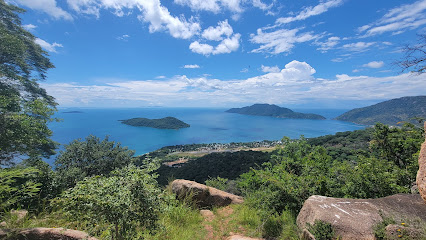
Mpira dam
Experience the serene beauty of Mpira Dam in Malawi, a tranquil escape offering picturesque views and opportunities for relaxation amidst nature.
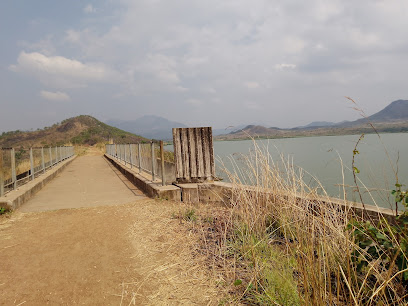
Missionary Graves
Explore the Missionary Graves in Chembe, a historical attraction reflecting the legacy and influence of early missionaries in Malawi's cultural heritage.
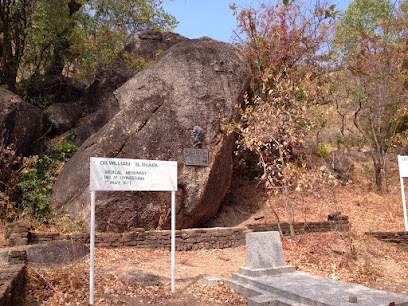
Essential places to dine
CC Cafe Malawi
Discover the taste of Malawi at CC Cafe: where delicious coffee meets inviting ambiance in Mangochi.
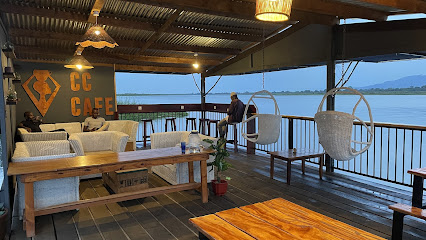
Kips' Express Mangochi
Discover Kips' Express Mangochi: A vibrant fast food destination offering delicious meals amidst the charm of Malawi.
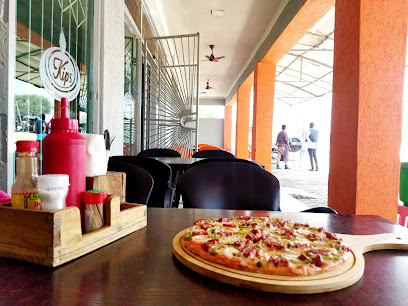
Zaburi Lake Resort By Serendib
Experience serene lakeside living at Zaburi Lake Resort By Serendib in Mangochi – where comfort meets adventure amidst nature's beauty.

The Boma and Hiccups Pub
Discover authentic Malawian cuisine and vibrant culture at The Boma and Hiccups Pub in Chembe - your perfect dining getaway.
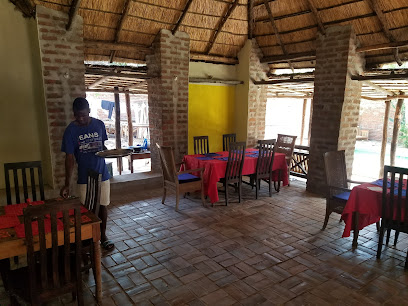
Kalibu-Lek Cafe and Restaurant
Experience authentic Malawian flavors at Kalibu-Lek Cafe and Restaurant in Mangochi—where every meal is a celebration of local culture.
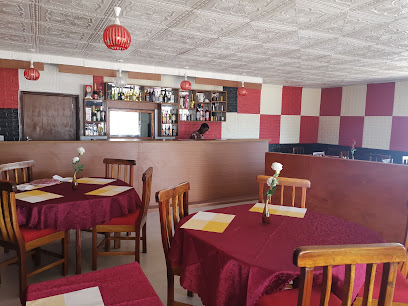
Flavours Food Court
Experience authentic Malawian cuisine at Flavours Food Court in Mangochi, where diverse flavors meet vibrant culture.
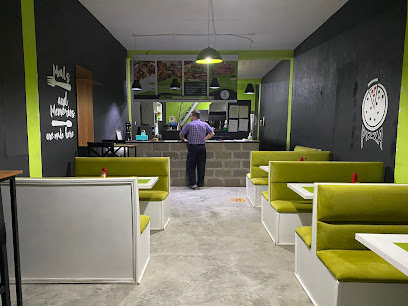
Aunt Mary Restaurant
Experience authentic Malawian cuisine at Aunt Mary Restaurant in Mangochi - where every dish tells a story.
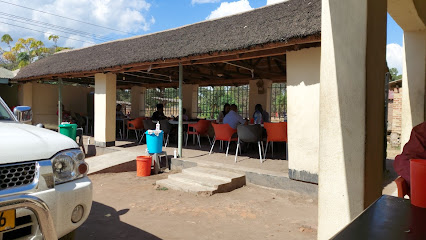
The Green Cafe
Discover the flavors of Malawi at The Green Cafe in Nkopola – where fresh ingredients meet local culture in a vibrant setting.
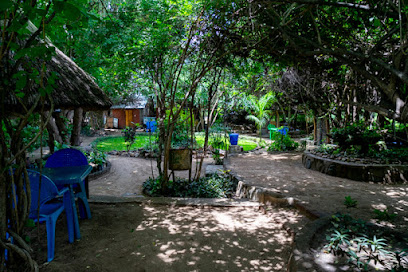
Ritz Legend Restaurant
Discover exquisite fast food at Ritz Legend Restaurant in Nkopola, where flavor meets convenience in an inviting atmosphere.
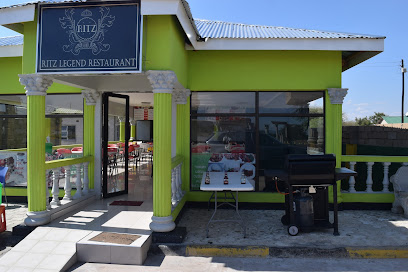
MAMA RUBBI REATRANT
Experience authentic Malawian cuisine at Mama Rubbi Restaurant in Mangochi – where every dish tells a story.
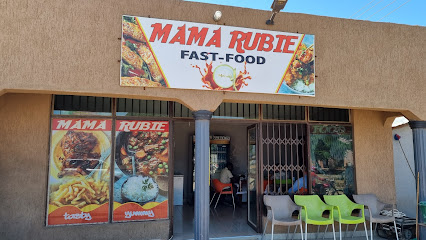
Kingfisher Resort
Discover family fun at Kingfisher Resort in Mangochi—where adventure meets relaxation amidst stunning natural beauty.
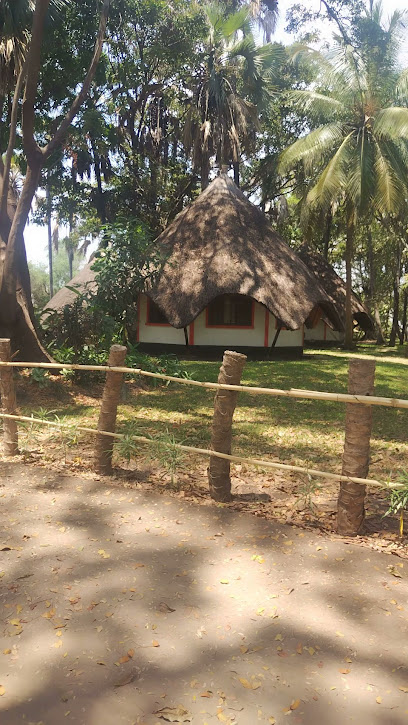
chiko chamagombo
Discover the authentic taste of Malawi at Chiko Chamagombo with delicious fish & chips in a welcoming atmosphere.

Palm Grill & Café
Experience authentic Malawian flavors at Palm Grill & Café in Mangochi – where great food meets warm hospitality.
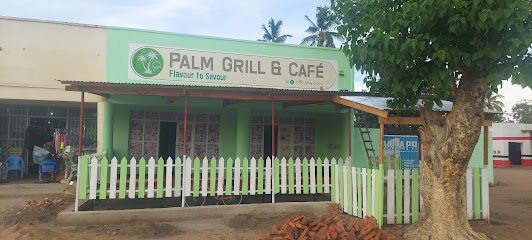
Taste of Arabs Executive Restaurant and Take away
Experience authentic Middle Eastern flavors at Taste of Arabs Executive Restaurant in Mangochi - a culinary journey awaits!
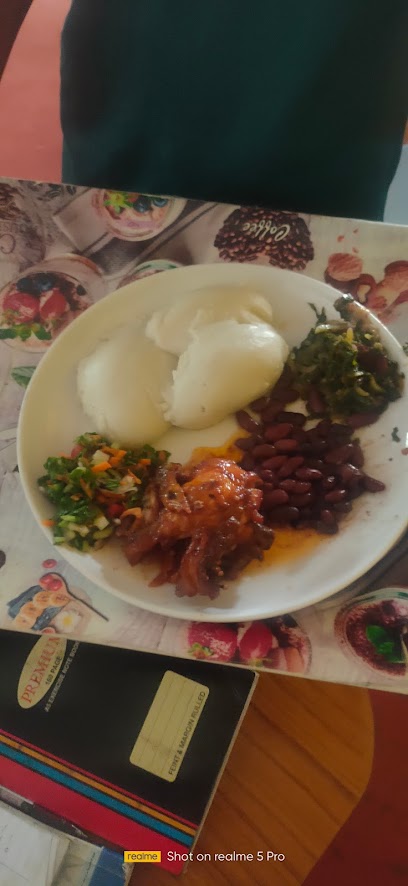
Paziwaya
Experience authentic fish and chips at Paziwaya in Nkopola, where fresh seafood meets local charm.

Markets, malls and hidden boutiques
Ekhaya Supermarket
Explore local flavors and essentials at Ekhaya Supermarket in Mangochi, your go-to grocery store for a taste of Malawi.
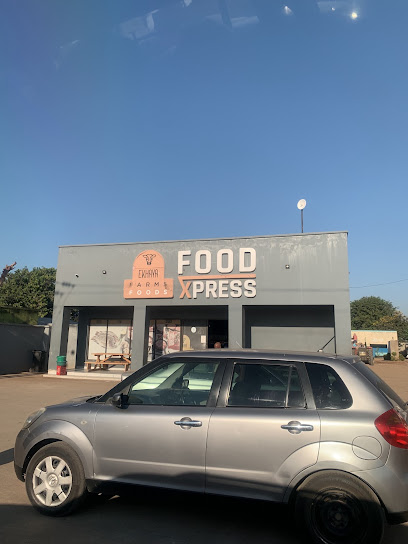
PEP Mangochi
Explore PEP Mangochi for affordable men's, women's, and children's clothing while experiencing the vibrant shopping culture of Malawi.
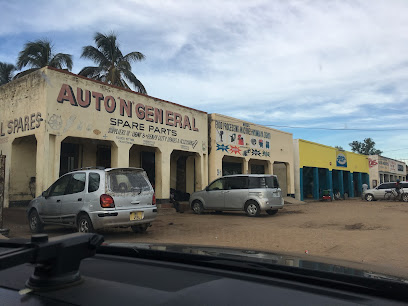
Majuni Trading center
Explore the vibrant Majuni Trading Center in Mangochi, Malawi, a shopper's paradise offering local crafts, fresh produce, and unique cultural experiences.
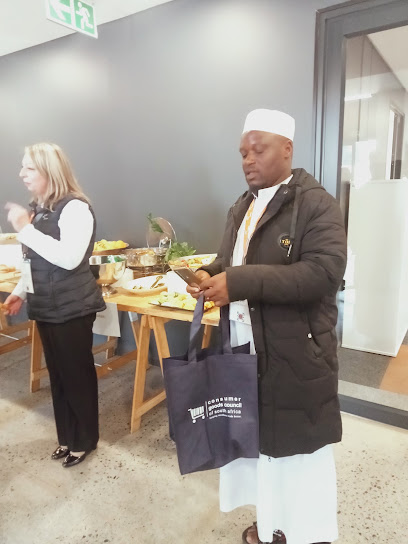
AMA Superette
Discover local flavors and essentials at AMA Superette in Mangochi, Malawi - a vibrant grocery store for all your needs.

Baby Gin's Place
Explore the vibrant fashion scene at Baby Gin's Place in Mangochi, where local craftsmanship meets contemporary style in a delightful shopping experience.

Mphamvu supp
Explore the local culture at Mphamvu Sup in Mangochi, where fresh produce and Malawian flavors come together in a vibrant shopping experience.
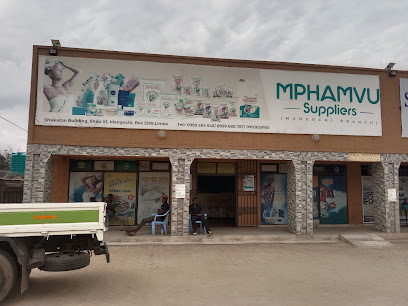
kabichi wholesalers
Experience local culture and vibrant shopping at Kabichi Wholesalers in Mangochi, a must-visit destination for every traveler.

CP Mangochi Farm shop
Explore unique handcrafted goods and local products at CP Mangochi Farm Shop, a charming destination in the heart of Mangochi, Malawi.
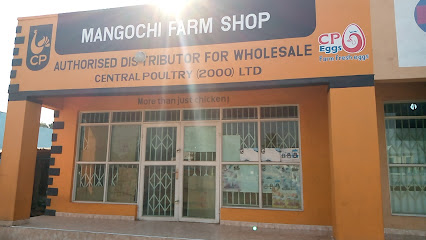
Chipoka Fantastics
Explore the essence of Malawian fashion at Chipoka Fantastics, where local craftsmanship meets contemporary style in Mangochi.

Abdul Rashid Brothers
Explore authentic Malawian craftsmanship at Abdul Rashid Brothers, your go-to home goods store in Mangochi for unique souvenirs and local treasures.
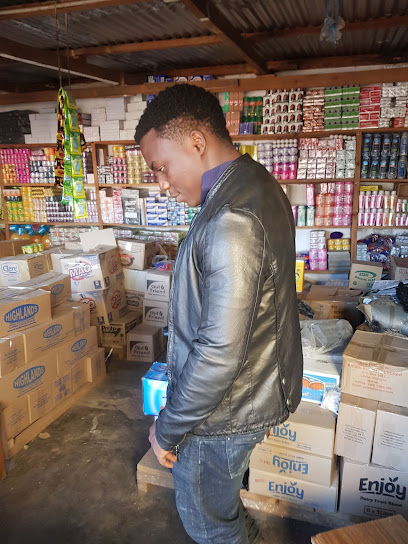
Durban
Discover the vibrant culture and stunning beaches of Durban, a coastal gem full of adventure and local flavors.

Mangochi Sun Supermarket
Explore local flavors and everyday essentials at Mangochi Sun Supermarket in Soko, Malawi – a vibrant hub for tourists and locals alike.

Zahabi Stationery and General Dealers
Discover Zahabi Stationery and General Dealers in Mangochi - a charming stationery store offering unique supplies and local crafts for every traveler.
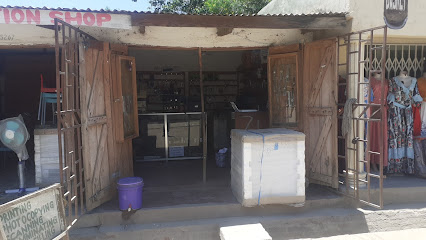
Tiger Arcade (MOON PUFFS)
Explore the lively shopping and entertainment atmosphere at Tiger Arcade (MOON PUFFS) in Mangochi, Malawi, where local culture meets vibrant commerce.
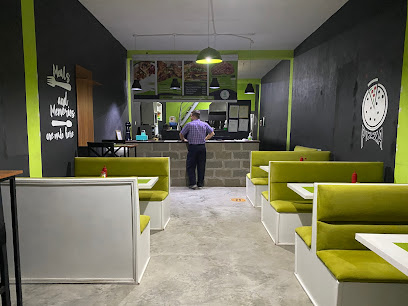
Max cosmetics
Explore Max Cosmetics in Mangochi for an exquisite range of beauty products, perfect for both locals and tourists seeking quality cosmetics.

Essential bars & hidden hideouts
CC Cafe Malawi
Experience the vibrant culture of Mangochi at CC Cafe Malawi, where coffee meets community in a delightful cafe setting.
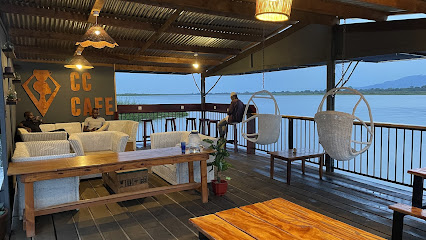
Waterfront Bar and Lodge
Discover the serene beauty of the Waterfront Bar and Lodge, where refreshing drinks meet breathtaking views in a tranquil atmosphere.
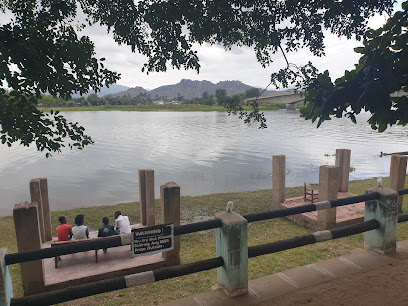
Octagon Tower
Discover the lively ambiance of Octagon Tower, a premier bar in Mangochi, where drinks, views, and local culture come together.
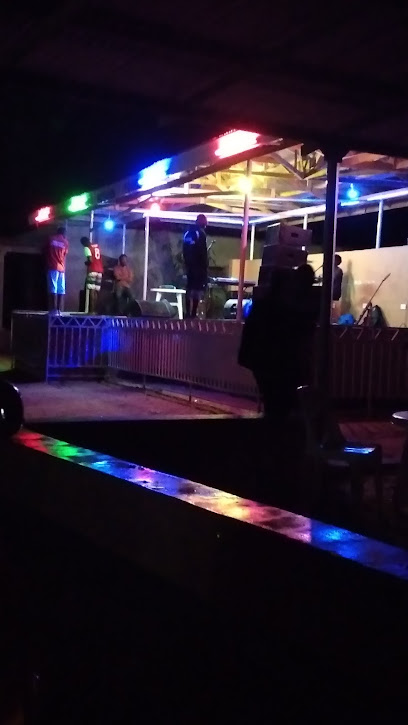
Zitherepano Club
Experience the electrifying nightlife of Nkopola at Zitherepano Club, where great music, local culture, and vibrant energy unite.

Framinoz
Experience the vibrant atmosphere of Framinoz in Monkey Bay, where local culture meets refreshing drinks and live entertainment.
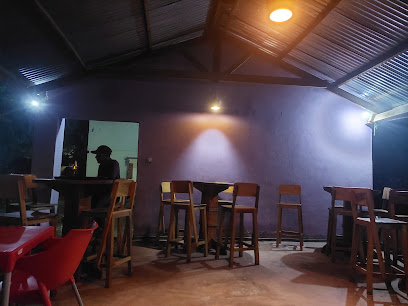
DAVIDO LOUNGE
Discover the lively ambiance and local charm at Davido Lounge, Mangochi's premier bar for a relaxing and vibrant experience.
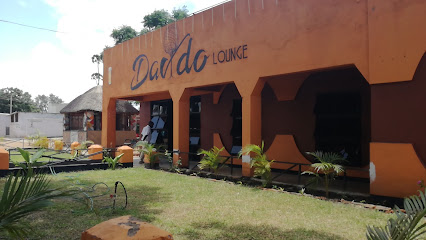
Captains Villa
Experience comfort and local charm at Captains Villa, a serene hotel in Mangochi, Malawi, perfect for relaxation and adventure.
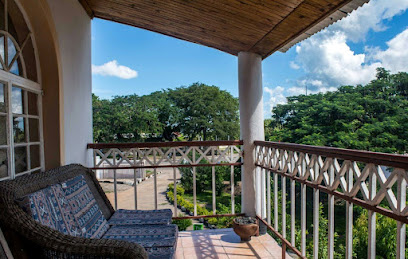
Bar & Grill
Experience local cuisine and vibrant culture at Bar & Grill, a lively destination on M1 Road perfect for tourists seeking authentic flavors.
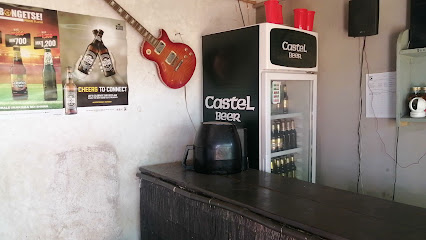
Hilltop Night Club
Discover the vibrant nightlife at Hilltop Night Club in Mangochi, where music, dance, and unforgettable experiences await every visitor.
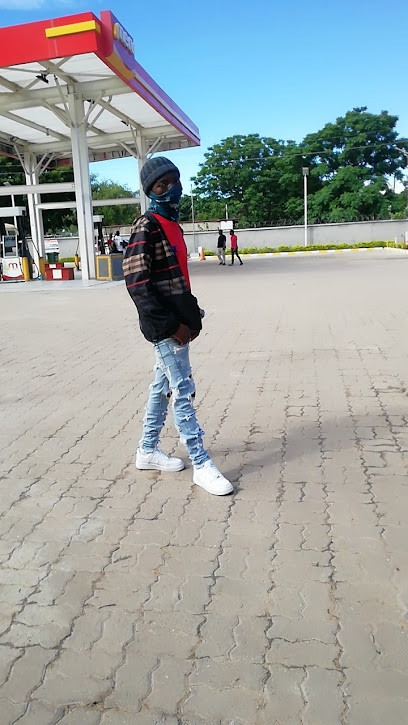
Peace and Love
Discover the vibrant atmosphere of Peace and Love Bar in Mangochi, Malawi, where delightful drinks and friendly faces create unforgettable memories.
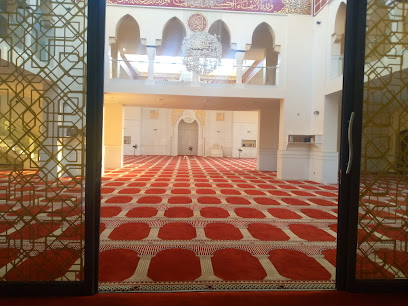
Pa Best
Discover the lively atmosphere and local flavors at Pa Best, Balaka's go-to bar for an authentic Malawian experience.

Platinum Lounge
Discover the lively ambiance of Platinum Lounge in Mangochi, where refreshing drinks and local culture meet for an unforgettable experience.

Mbira Restaurant
Experience authentic Malawian flavors at Mbira Restaurant in Mangochi, where every dish tells a story of local culture and tradition.

Bolera Breeze Bar and Restaurant
Savor the essence of Malawian cuisine at Bolera Breeze Bar and Restaurant, where breathtaking views meet delightful flavors.

The Makokola Retreat
The Makokola Retreat: A serene lakeside escape offering luxury accommodations and a gateway to Malawi's natural beauty and vibrant culture.

Local Phrases
-
- HelloMoni
[moh-nee] - GoodbyeTionana
[tee-oh-nah-nah] - YesEe
[ee] - NoAyiyi
[ah-yee-yee] - Please/You're welcomeZikomo
[zee-koh-moh] - Thank youZikomo kwambiri
[zee-koh-moh kwahm-bee-ree] - Excuse me/SorryPepani
[peh-pah-nee] - How are you?Muli bwanji?
[moo-lee bwan-jee] - Fine. And you?Ndili bwino. Inu?
[n-dee-lee bwee-noh. ee-noo] - Do you speak English?Mukhulupilira Chingerezi?
[moo-koo-loo-pee-lee-rah chin-geh-reh-zee] - I don't understandSindikudziwa
[sin-dee-koo-dzee-wah]
- HelloMoni
-
- I'd like to see the menu, pleaseNdikufuna kuyembekeza mamenyu, chonde
[n-dee-koo-foo-nah koo-yem-beh-kay-zah mah-meh-nyoo, chohn-deh] - I don't eat meatSindidya nyama
[sin-dee-dyah nyah-mah] - Cheers!Zonse zochita bwino!
[zohn-seh zoh-chee-tah bwee-noh] - I would like to pay, pleaseNdikufuna kugulitsa, chonde
[n-dee-koo-foo-nah koo-goo-lee-tsah, chohn-deh]
- I'd like to see the menu, pleaseNdikufuna kuyembekeza mamenyu, chonde
-
- Help!Chitani chomwe!
[chee-tah-nee chohm-weh] - Go away!Pita kwathu!
[pee-tah kwah-thoo] - Call the Police!Pangani zinthu Police!
[pahn-gah-nee zeen-thoo poh-leece] - Call a doctor!Pangani daktari!
[pahn-gah-nee dahk-tah-ree] - I'm lostNdimakwiya
[ndee-mah-kwee-yah] - I'm illNdimakukonda
[ndee-mah-koo-kohn-dah]
- Help!Chitani chomwe!
-
- I'd like to buy...Ndikufuna kugula...
[n-dee-koo-foo-nah koo-goo-lah] - I'm just lookingNdikulandira basi
[n-dee-koo-lahn-dee-rah bah-see] - How much is it?Ndi ndalama zingati?
[ndee ndah-lah-mah zin-gah-tee] - That's too expensiveIzi ndi zambiri
[ee-zee ndee zahm-bee-ree] - Can you lower the price?Mukhoza kuwotsa ndalama?
[moo-koh-zah koo-wot-sah ndah-lah-mah]
- I'd like to buy...Ndikufuna kugula...
-
- What time is it?Saa ndi zingati?
[sah ndee zin-gah-tee] - It's one o'clockNdi saa yomwe yayi
[ndee sah yohm-weh yah-yee] - Half past (10)Pafupi ndi (10)
[pah-foo-pee ndee (10)] - MorningUsiku
[oo-see-koo] - AfternoonMawa
[mah-wah] - EveningM'madzulo
[m-mah-dzoo-loh] - YesterdayNtchito izakhala
[n-tchee-toh ee-zah-khah-lah] - TodayLero
[leh-roh] - TomorrowMawa
[mah-wah] - 1Wanu
[wah-noo] - 2Ziwiri
[zee-wee-ree] - 3Zitsopano
[zee-tsoh-pah-noh] - 4Zinayi
[zee-nah-yee] - 5Zidzukulu
[zee-dzoo-koo-loo] - 6Zisanu
[zee-sah-noo] - 7Zisano
[zee-sah-noh] - 8Ziwanda
[zee-wahn-dah] - 9Zikumi
[zee-koo-mee] - 10Kumi
[koo-mee]
- What time is it?Saa ndi zingati?
-
- Where's a/the...?Kodi... ili kuti?
[koh-dee ee-lee koo-tee] - What's the address?Adilesi ndi ino?
[ah-dee-leh-see ndee ee-noh] - Can you show me (on the map)?Mukhoza kundionetsa (pa mapu)?
[moo-koh-zah kun-dee-oh-neh-tsah pah mah-poo] - When's the next (bus)?Bus ija idzakhala liti?
[boos ee-jah ee-dzah-khah-lah lee-tee] - A ticket (to ....)Ndi tikiti (ku ....)
[ndee tee-kee-tee koo]
- Where's a/the...?Kodi... ili kuti?
History of Mangochi
-
Mangochi, nestled on the shores of Lake Malawi, has a rich history that dates back to the early centuries when it was home to the Maravi people. As part of the greater Maravi Empire, this area was crucial for trade and cultural exchange within the region.
-
In the late 15th and early 16th centuries, Portuguese explorers arrived on the east coast of Africa and soon made their way inland. They established trade routes through Mangochi, trading goods such as ivory and gold. This period marked the beginning of European influence in the area.
-
By the mid-19th century, the Yao people, who were adept traders and warriors, had become prominent in Mangochi. They facilitated trade between the interior of Africa and the Swahili coast. The Yao adopted Islam from Swahili traders, which remains a significant aspect of Mangochi's cultural identity today.
-
Mangochi was significantly impacted by the East African slave trade during the 19th century. Arab traders established routes through the area, capturing and transporting enslaved people to the coast. This dark period left a lasting impact on the social fabric of the region.
-
In the late 19th century, Mangochi came under British colonial rule as part of the British Central Africa Protectorate. The British established administrative centers and introduced Western-style education and Christianity, significantly altering the local way of life.
-
In 1891, the British established a fort at Mangochi and named it Fort Johnston after Sir Harry Johnston, a key figure in the colonization of Central Africa. This fort served as a strategic military and administrative post during the colonial period.
-
Malawi gained independence from British rule in 1964, and Mangochi became part of the newly formed nation. Since then, Mangochi has developed into a vibrant district known for its tourism, thanks to its beautiful lakeshore and rich cultural heritage.
-
Mangochi is known for its vibrant cultural festivals that celebrate the heritage of its diverse ethnic groups. Events such as the Kulamba Ceremony of the Chewa people and various Islamic festivals highlight the region's rich traditions and communal spirit.
-
Today, Mangochi is a popular tourist destination, attracting visitors with its stunning beaches, wildlife reserves, and historical sites. Efforts in conservation and sustainable tourism have helped preserve the region's natural beauty and cultural landmarks for future generations.
Mangochi Essentials
-
Mangochi is accessible via Chileka International Airport in Blantyre, which is approximately 200 kilometers away. From Blantyre, you can take a bus, hire a taxi, or rent a car to reach Mangochi. The journey by road typically takes around 3 to 4 hours, depending on traffic and road conditions. Alternatively, you can take a bus from Lilongwe, which is about 280 kilometers away and takes approximately 5 to 6 hours by road.
-
Within Mangochi, transportation options include taxis, minibuses, and bicycle taxis. Taxis are available but can be relatively expensive, so it is advisable to agree on a fare before your journey. Minibuses are a common and economical way to travel within the town and to nearby areas. Bicycle taxis, locally known as 'kabaza,' are an affordable and eco-friendly option for short distances.
-
The official currency in Malawi is the Malawian Kwacha (MWK). Credit cards are accepted in some hotels, restaurants, and larger shops, but it is advisable to carry cash, especially in smaller establishments and rural areas. ATMs are available in Mangochi, but it is wise to withdraw sufficient cash in Blantyre or Lilongwe before traveling to ensure you have enough funds. Currency exchange services are also available in banks and some hotels.
-
Mangochi is generally a safe destination for tourists. However, like any travel destination, it is advisable to take standard precautions. Avoid walking alone at night in unfamiliar areas and keep an eye on your belongings in crowded places. While Mangochi does not have specific high-crime areas targeting tourists, it is always best to stay vigilant and aware of your surroundings. Be cautious when using public transportation and avoid displaying valuable items.
-
In case of emergency, dial 997 for police assistance or 998 for medical emergencies. Mangochi has a local police station and medical facilities, including Mangochi District Hospital. It is recommended to have travel insurance that covers medical emergencies. For minor health issues, there are pharmacies in the town where you can purchase over-the-counter medications.
-
Fashion: Do dress modestly, especially when visiting religious sites and rural areas. Avoid wearing revealing clothing. Religion: Do respect local customs and traditions. Always ask for permission before taking photos of people, especially in religious settings. Public Transport: Do be respectful and give up your seat to elderly passengers. Don’t eat or drink on public transport. Greetings: Do greet people with a handshake and a smile. A slight bow of the head is also a sign of respect. Eating & Drinking: Do try local delicacies and accept food offerings graciously. Don’t refuse hospitality, as it is considered impolite.
-
To experience Mangochi like a local, visit the local markets where you can buy fresh produce and traditional Malawian goods. Engage with locals, as they are often friendly and willing to share stories about the town's history and culture. Don't miss visiting the Lake Malawi National Park, which offers stunning views and a variety of water activities. For a unique experience, take a boat trip on Lake Malawi to explore the nearby islands and enjoy the beautiful scenery.
Trending Landmark in Mangochi
-
Liwonde National Park
-
Sun 'n' Sand Holiday Resort
-
Sunbird Nkopola Lodge
-
Lake Malawi National Park
-
Fat Monkeys Lodge
-
World War I Memorial
-
Boadzulu Lakeshore Resort
-
Nkhudzi Lodge
-
Alcon Cottage
-
La Riviera Lodge
-
Zaburi Lake Resort By Serendib
-
Lake Malawi National Park Visitors Center
-
Malape pillars
-
Mpale Cultural Village
-
Bakili Muluzi Bridge
Nearby Cities to Mangochi
-
Things To Do in Zomba
-
Things To Do in Salima
-
Things To Do in Blantyre
-
Things To Do in Lilongwe
-
Things To Do in Chipata
-
Things To Do in Nkhata Bay
-
Things To Do in Mzuzu
-
Things To Do in Nyanga
-
Things To Do in Karonga
-
Things To Do in Mutare
-
Things To Do in Harare
-
Things To Do in Chinhoyi
-
Things To Do in Kasama
-
Things To Do in Mbeya
-
Things To Do in Kariba









